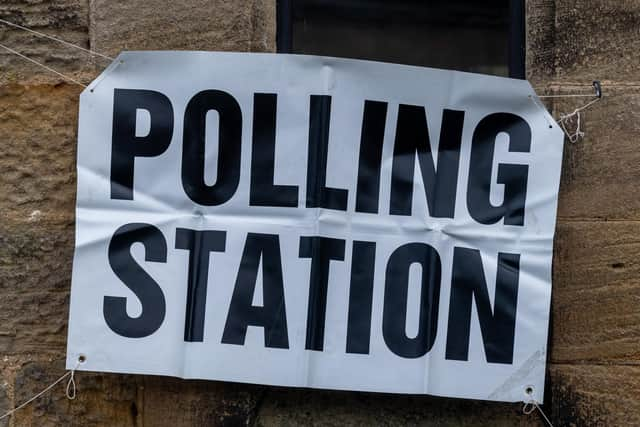Coronavirus could end the culture wars and Brexit divides in UK politics, with ‘Red Wall’ seats as the new battleground
The impact of coronavirus is thought to be behind the return to normal party politics four years on from the Brexit referendum, according to a think tank, with the pandemic causing voters to take a dimmer view of previously touted post-Brexit trade partners like the US and China.
The research carried out by YouGov and Datapraxis for the European Council on Foreign Relations (ECFR) found the Leave/Remain identities created during campaigning running up to the referendum, and which have endured since, are starting to blur, with voters just as likely to judge the Government on the response to the coronavirus pandemic as on their attitude towards Brexit.
Advertisement
Hide AdAdvertisement
Hide AdThe report, published yesterday, said “politics divided along the lines of Leavers and Remainers could disappear as quickly as it appeared”.


While the data also suggested that voters in former so-called Red Wall seats were already receptive voting for another party.
The report said: “Many people had lent their votes to Boris Johnson’s Conservatives for cultural reasons, in spite of the fact that they were closer to the opposition Labour Party on economic issues. Covid-19 might cause a rethink, as voters expect competence from the government.”
And of the “Red Wall defectors” - those who voted Conservative for the first time in the last election - some 46 per cent of them were undecided on who they would vote for now, leaving the battleground firmly in those seats.
Advertisement
Hide AdAdvertisement
Hide AdThat risk has been recognised by the Conservatives, with the Prime Minister acknowledging people in those areas lent the party their votes.
And the report suggested that the Government’s “levelling up” agenda to close the North/South divide and push forward on infrastructure investment was designed to accompany policy on Brexit to appease those voters.
But the data found that since the coronavirus pandemic some 23 per cent of those who voted Conservative in 2019 in those seats were willing to vote for Labour again, but Labour also had a large proportion of undecided voters.
The report said: “A large group of people who have voted Labour in the past (in at least one of the general elections of 2005, 2010, 2015, or 2017, but not in 2019) are still not considering voting Labour at the next election. This group makes up 10 per cent of the entire voting population and mostly consists of older voters.”
Advertisement
Hide AdAdvertisement
Hide AdThe pollsters found 50 per cent of “Red Wall defectors” have a worsened perception of the current government, but the Labour party’s image had also not improved as much as it has among voters more generally.
The report said: “Like Leavers as a whole, they are also less likely to blame the government for covid-19 deaths; more Red Wall defectors blame the Chinese government, or people not following the rules.”
Founding director of ECFR, Mark Leonard, said: “This polling shows we may return to a ‘natural state’ of familiar left-right, bread and butter politics, and pragmatic internationalism after a long parenthesis from 2016 to 2020 where Brexit identities took over.
“While many ‘Red Wallers’ are aligned with the Conservatives on cultural issues, they are embracing a pragmatic internationalism abroad and a redistributive agenda at home, that could play well for Labour under Sir Keir Starmer.
Advertisement
Hide AdAdvertisement
Hide Ad“This polling shows the first sign that Covid-19 could end up transforming perceptions of Government competence in the way that Black Wednesday transformed perceptions of conservative economic management in 1992, and opened the way for a political realignment in which Labour seized the agenda on both culture and the economy.”
Comment Guidelines
National World encourages reader discussion on our stories. User feedback, insights and back-and-forth exchanges add a rich layer of context to reporting. Please review our Community Guidelines before commenting.